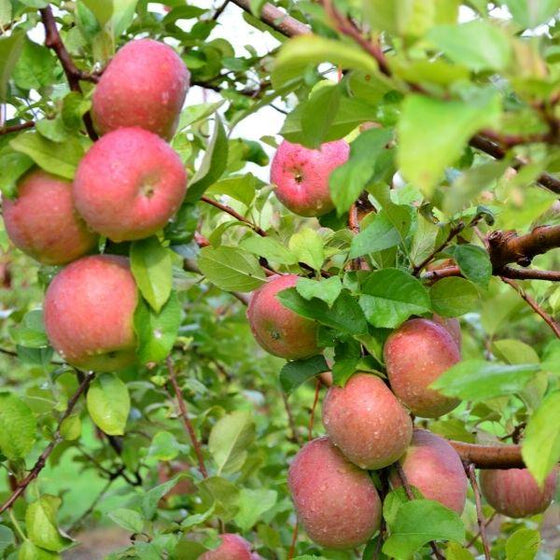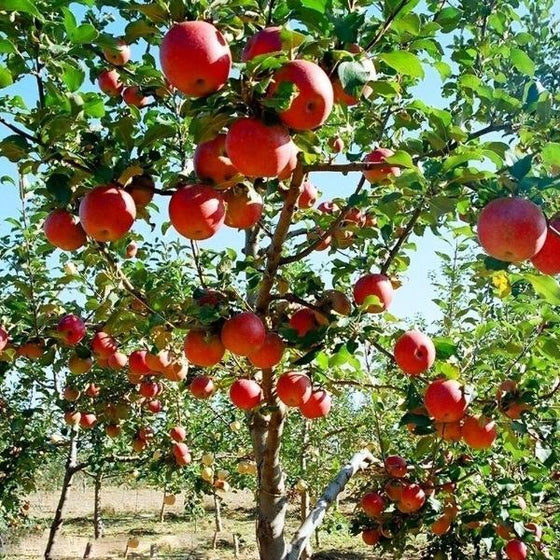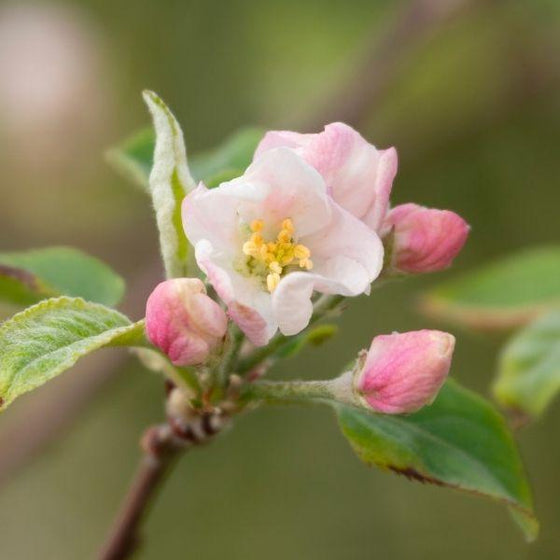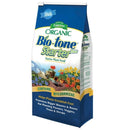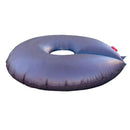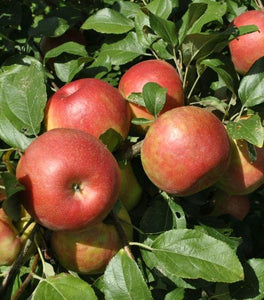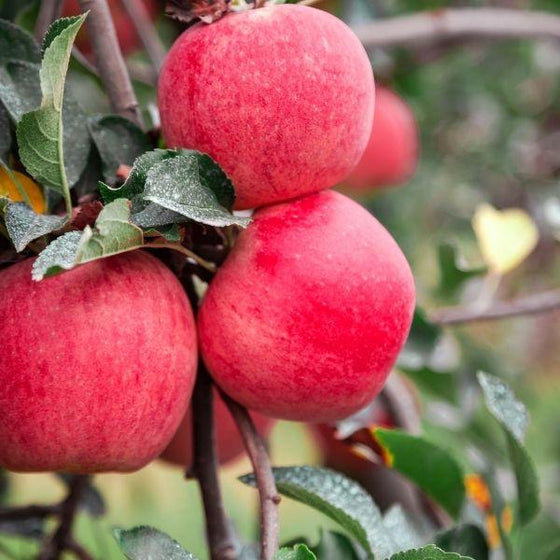
Images Depict Mature Plants
Fuji Apple Trees for Sale Online
Fuji apples contain between 15 to 18 percent sugar, making them one of the sweetest apples available today. The very round, medium to large apple is usually green or yellow-green, with red highlights or pink blush. It is also very crisp and juicy, with white flesh that snaps when bitten.
Fuji apples will last up to 3 months when stored in a cool, dry, and dark location. Even when picked straight off the tree, they will last up to 3 weeks when stored in the refrigerator. It's great for snacking, as well as a good baking apple.
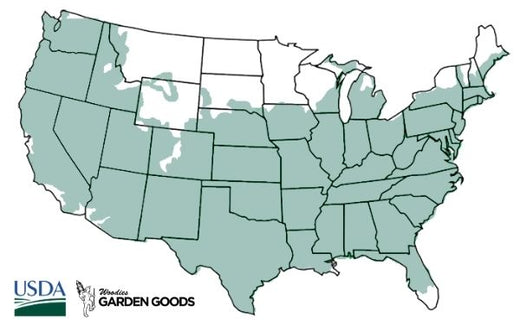
| Hardiness Zone: | 5-9 |
|---|---|
| Mature Height: | 15 to 20 feet |
| Mature Width: | 12 to 15 feet |
| Classification: | Broad leaved deciduous tree, spring flowering |
| Sunlight: | Full sun |
| Habit: | Spreading, umbrella shaped canopy |
| Foliage: | Dark green |
| Fruit Color: | Pink over yellow |
| Pruning Season: | Late winter |
| Soil Condition: | Any well drained soil |
| Water Requirement: | Water well until established |
| Uses: | One of the best apples for eating fresh or storing |
How to Care for Fuji Apple Tree
Before you buy a Fuji Apple Tree, make sure to read about the recommended care instructions to keep this plant healthy and thriving.
How do I plant my Red Fuji Apple Tree?
We suggest when planting your newly purchased Fuji Apple Tree that you dig a hole twice as wide as the root system but not deeper. Depending on the quality of your existing soil you may need to add a locally sourced compost or topsoil to the back-fill soil. We do not recommend using straight topsoil or compost as a back-fill soil because more times than not these products will retain entirely to much moisture and will cause the root system to rot. Adding compost or topsoil will help the young feeder roots of Fuji Apple Tree to spread through the loose, nutrient rich soil, much easier than if you used solely the existing soil which more times than not will be hard and compacted. The most common cause of plant death after transplanting is planting the new plant to deep. That is why we do not recommend planting in a hole any deeper than the soil line of the plant in the pot. A good rule is that you should still be able to see the soil the plant was grown in after back-filling the hole.
How often should I water my Red Fuji Apple Tree?
After back filling and lightly compacting the 50/50 mix of existing soil and compost give the Fuji Apple Tree a good deep watering. This is not to be rushed. Most of the water you put on the plant at first will run away from the plant until the soil is soaked. A general rule of thumb is to count to 5 for every one gallon of pot size. For example a one gallon pot would be watered until you count to 5 a three gallon pot would be 15 and so on. Check the plant daily for the first week or so and then every other day there after. Water using the counting method for the first few weeks. Gator Bags are a good investment that will help minimize the watering chore.
What kind of mulch is best for a Fuji Apple Tree?
It's a good idea to provide a layer of mulch over the base of your young Fuji apple tree, to help regulate soil temperatures and to protect the roots from resource-stealing weeds. We highly recommend that you mulch your apple tree with either a ground hardwood mulch or a ground cypress mulch depending on your local availability. Cypress or hardwood mulch will be of a higher quality and provide better nutrition overall as they breakdown, but any mulch will do the trick. Mulching helps to keep weeds away which will compete with your new investment for water and nutrients. A 2 to 3-inch layer of mulch is perfect but take care not to cover any part of the actual trunk of the tree. It's better to leave a small 1 inch gap between the mulch and the stem or trunk.
How much Fertilizer does a Fuji Apple Tree require?
Trees such as Fuji Apple Tree grow best if they are fertilized lightly in the spring once frost has passed with a well-balanced, extended-release, fertilizer such as Espoma Tree-tone. Fertilize Granny Smith Apple Trees again 6 to 8 weeks later to encourage heavier fruit set and faster growth of young trees. We recommend Bio-Tone fertilizer when planting.

